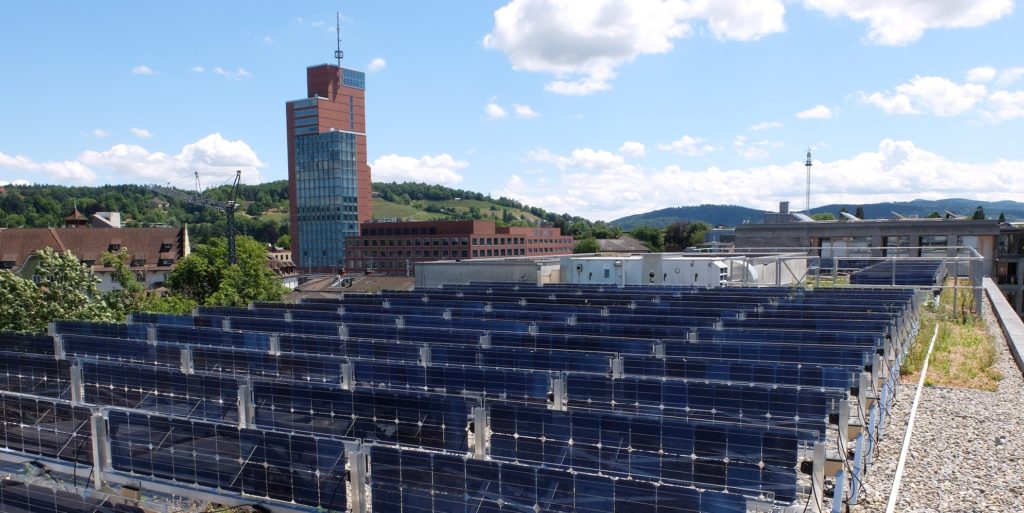Switzerland’s regulatory framework for the promotion of PV will change starting in 2018. According to the Swiss Photovoltaic Association Swissolar, the current FIT scheme (KEV) for residential and commercial PV will be replaced with a rebate scheme (EIV).
From 2018, FITs will be paid only to projects that were registered for a FIT contract before mid-2012. All other PV systems will be funded through the EIV, which will guarantee a maximum of 30% of the investment costs, according to Swissolar.
With these new provisions, the number of supported projects could considerably increase. So far, the investment subsidy has been paid only for PV systems not exceeding 30 kW in size.
In recent years, a huge waiting list has been set up under the FIT scheme in the Alpine Republic. According to Swissolar, it contains around 38,000 PV projects, which are now being treated preferentially in the payment of the EIV. New applicants would, therefore, have to be patient, with projects up to 100 kW having to wait about 2.5 years.
However, these systems could already be installed without the commitment of the funding agency, according to Swissolar. For PV systems over 100 kW, the waiting period may be of more than six years. According to the association, there is no financial risk for the investors in both cases, as the payment of contributions is guaranteed by law.
In addition, the new regulations will in the future allow collective projects for self-consumption. The simplified scheme also allows higher self-consumption rates, which makes these models more economically interesting for multi-family houses and commercial real estate, said Swissolar.
The calculation for the remuneration of surplus solar power, which continues to be fed into the grid despite optimized self-consumption, is newly regulated in the law. In many distribution areas, an increase in these “return rates” is to be expected.
In Switzerland, power providers set these tariffs for their areas independently, which is why they have differed widely regionally so far. According to reports from the Swiss Association of Independent Energy Producers (VESE), this year's average was 0.09 CHF (US€0.0855) per kWh. However, tariffs ranged from 0.04 CHF to 0.14 CHF per kWh.
This content is protected by copyright and may not be reused. If you want to cooperate with us and would like to reuse some of our content, please contact: editors@pv-magazine.com.




1 comment
By submitting this form you agree to pv magazine using your data for the purposes of publishing your comment.
Your personal data will only be disclosed or otherwise transmitted to third parties for the purposes of spam filtering or if this is necessary for technical maintenance of the website. Any other transfer to third parties will not take place unless this is justified on the basis of applicable data protection regulations or if pv magazine is legally obliged to do so.
You may revoke this consent at any time with effect for the future, in which case your personal data will be deleted immediately. Otherwise, your data will be deleted if pv magazine has processed your request or the purpose of data storage is fulfilled.
Further information on data privacy can be found in our Data Protection Policy.